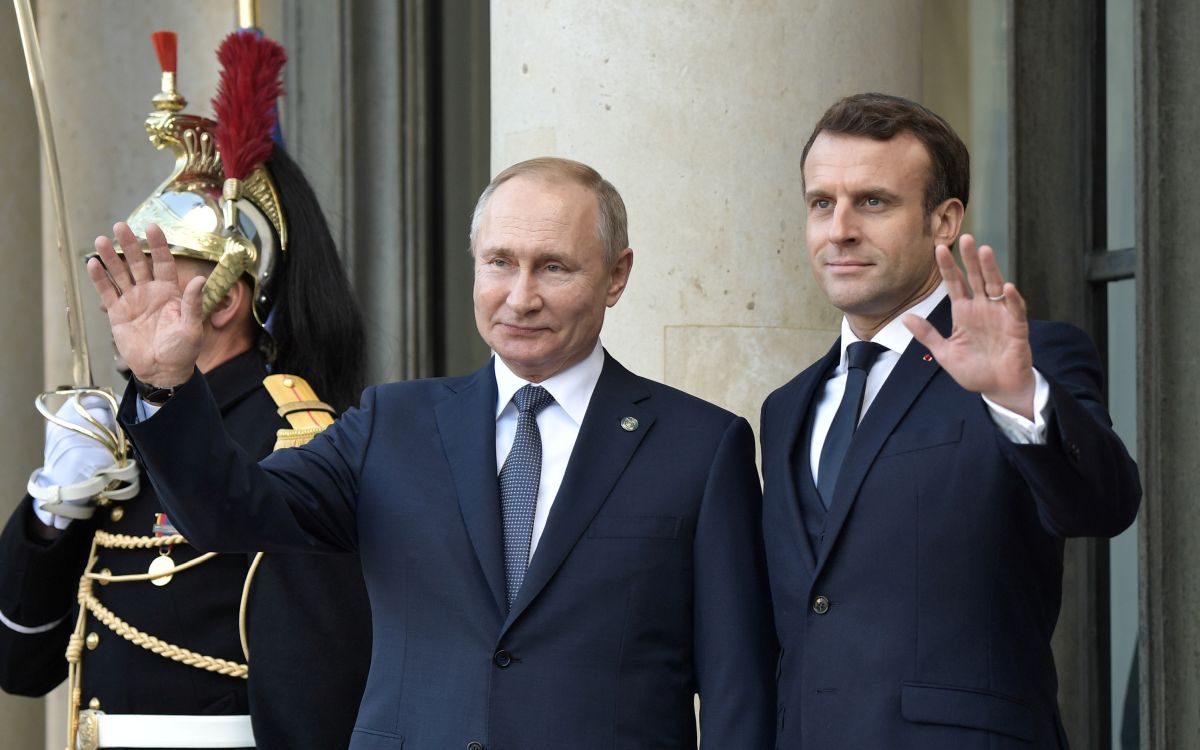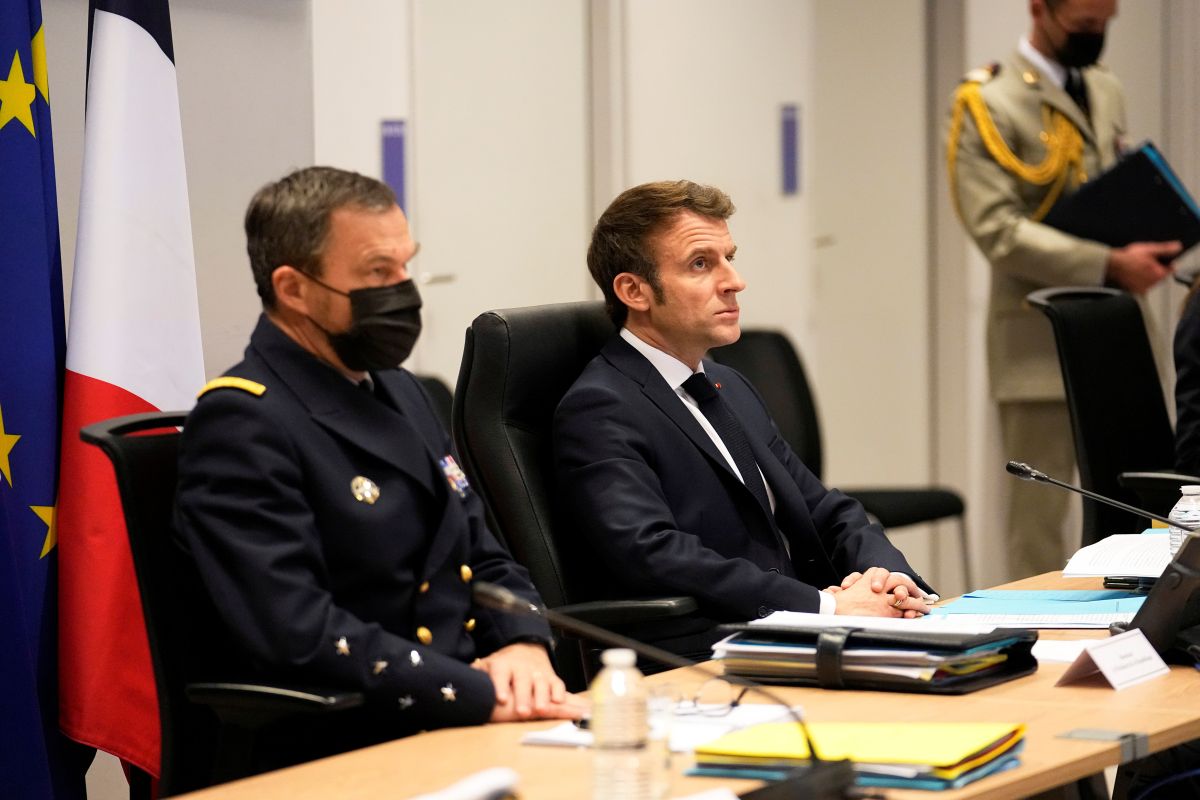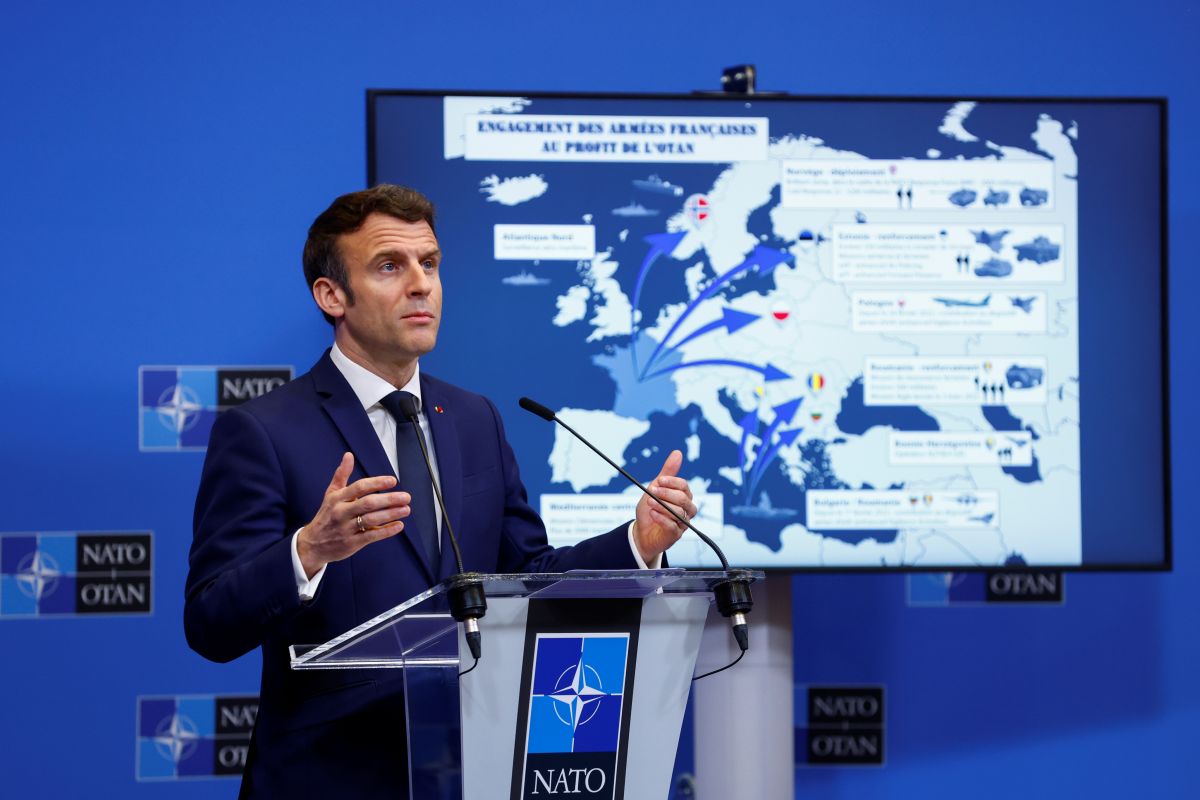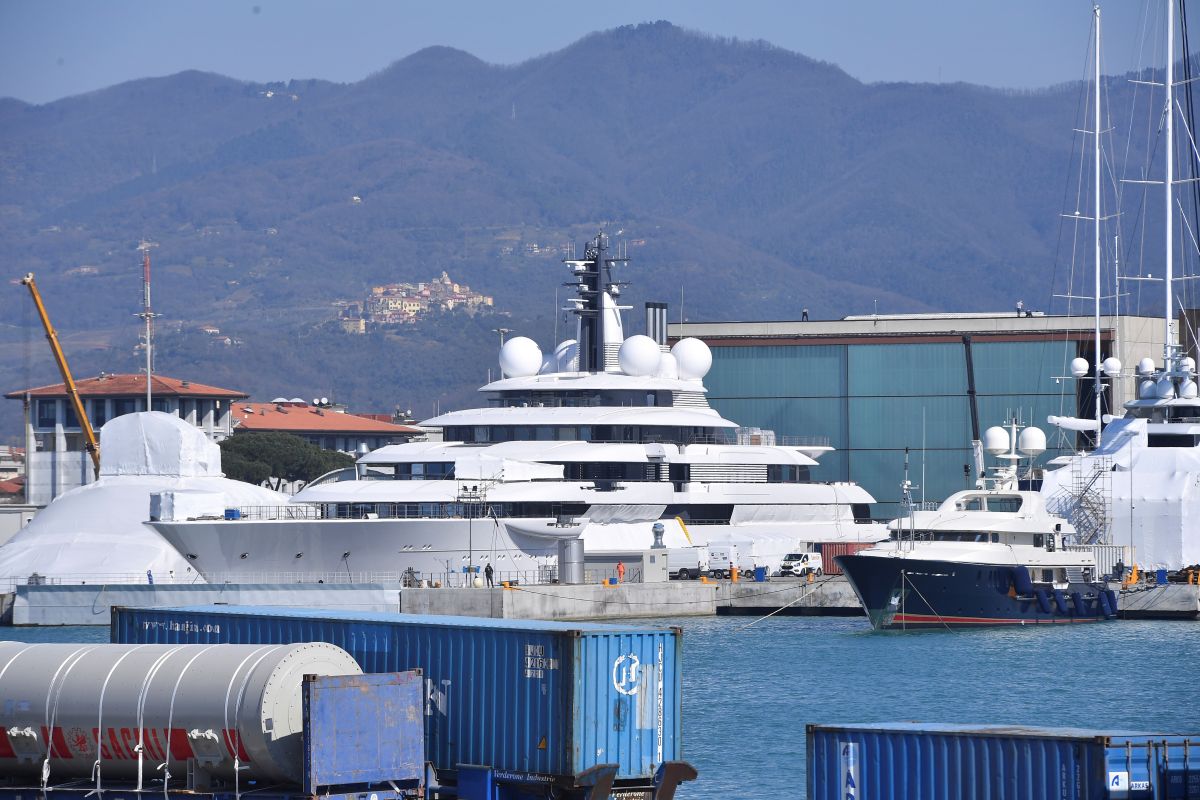Franco-Russian Economic Relations in the Face of the War in Ukraine
Russia’s aggression against Ukraine will affect the French economy in micro and macroeconomic terms. At the present stage of the conflict, most French companies, supported in their decisions by the government, do not plan to withdraw from Russia altogether, and a few have decided to suspend their activities or to make no further investments. Due to the long-term investment of capital in Russia, considered to be a promising emerging market despite international sanctions imposed since 2014, France will continue its bilateral economic cooperation while looking for new investment directions and strengthening its position on the global market.
 SPUTNIK/ Reuters/ FORUM
SPUTNIK/ Reuters/ FORUM
After 2014, France was pragmatic towards trade relations with Russia. Last year, it was the only one of the 10 largest EU partners in Russia to increase its trade turnover to the level from before the sanctions were imposed. However, trade between the two countries remains low. France is the sixth largest supplier in Russia (third from the EU, with 3.5% market share), and in 2021, exports to Russia, the 15th largest market for France and the seventh outside the EU, amounted to €6.5 billion, constituting only 1.3% of total exports. The value of imports from Russia (France’s 17th largest supplier) reached €9.7 billion, or 1.7% of total French imports. However, the most important for the development of economic relations are French investments in the Russian market. France remained the second largest foreign investor in Russia (after the UK and before Germany), and the biggest foreign employer with approximately 160,000 employees. There are more than 500 French companies operating in Russia, 35 of which are listed on the main French CAC 40 index.
Economic Cooperation Areas
Although France is much less dependent on Russian raw materials than Germany, Italy or Poland, their percentage share in trade is high. According to the Ministry of Economy, refined petroleum products, hydrocarbons and other extractive industry products accounted for more than 77% of French imports from Russia in 2020. Imported metals and metallurgical products (6%) used, for example, in aviation, also play an important role for French industry. The main groups of exported products include transport equipment (24.3%), chemicals, perfumes, and cosmetics (21.4%), machines, including industrial and agricultural ones (10.7%), pharmaceuticals (8%), and computer, electronic and optical products (7.2%). French foreign direct investment (FDI) in Russia maintains its high level mainly thanks to the TotalEnergies group (€9 billion of investments). Russian FDI in France includes around 30 companies employing 3,500 people, and Russian Railways (RZhD) is the main investor.
The development of French companies in the last decade has been particularly intense in the agri-food industry, finance, distribution and transport, and the automotive industry. The strategic partnership also covers the energy sector, including nuclear energy, and the aviation and space industry. Rosatom has started cooperation with EDF and companies producing power units. From 2015 to 2020, France also sold war material to Russia despite the EU embargo, explaining that the deliveries concerned contracts concluded before the imposition of sanctions. The new areas of cooperation include the creation of smart cities and new mobility, as well as the innovation and health sectors.
French companies have extensive retail chains in Russia, and their own production plants. The companies with the largest capital in Russia include, among others Auchan (around 40,000 employees and 300 stores generating 10% of the company’s total turnover), Leroy Merlin (more than 35,000 employees, 100 stores, €1.3 billion investments), Danone (8,000 employees, over a dozen factories, €2.5 billion investments), the industrial concern Saint-Gobain (1,800 employees, 10 production plants, €0.5 billion investments) and LVMH (3,500 employees, 120 stores). Russia is the second largest market for Renault. In 2021 500,000 vehicles were sold. Renault’s subsidiary Avtovaz (manufacturer of the Lada brand) recorded €2.8 billion in turnover. Société Générale, present on the Russian market through a subsidiary Rosbank, has invested €2.1 billion and employs 12,000 people. Total also holds shares in Russian infrastructure projects (Yamal LNG and Arctic LNG 2). In addition, French SMEs have invested in Russia. The company Monin, which produces syrups, has opened a production plant in the Stupino Kvadrat economic zone with the intention of distribution also to Kazakhstan and Belarus. The agricultural seed producer Lidea has invested €25 million in a factory in the Voronezh region.
The Reaction of the Government and French Companies
A month after the outbreak of the war, almost 200 companies had suspended their activity in Russia, with the possibility of resuming operations, including Renault, Michelin, Crédit Agricole, BNP Paribas and Decathlon. Deliveries were suspended at the beginning of March by Alstom, Dassault Aviation and CMA CGM, as well as representatives of luxury brands (Kering and Hermès). Around 30 companies have decided to partially reduce their activities, including the pharmaceutical concern Sanofi and the Total group. The latter will stop buying oil and petroleum products from Russia and will not invest in new projects. Danone, Accor, and Air Liquide are among the 69 companies to react only by making no new investments. However, nearly 40 French companies have not taken any steps to restrict their activity in Russia. Among them are Bonduelle, with three factories generating 5% of the company’s turnover, Auchan, Leroy Merlin, Saint-Gobain (10 factories), Société Générale, and the leaders of the French energy sector, EDF and Engie. Less than 180 companies decided to withdraw from the market completely.
The government dissuaded companies from hastily withdrawing from the Russian market, and at the same time announced the introduction of mechanisms limiting the effects of the war on society and business. The resilience plan (plan de résilience), amounting to €6.8 billion, assumes support of consumers and companies in the face of rising raw material prices. Prime Minister Jean Castex announced a fuel cut of 15 euro cents per litre, including for transport companies. Other government actions are like pandemic relief mechanisms in responding to supply disruptions, losses in international markets and rising inflation. The debt limit has been raised from 25% to 35% of turnover under the state-guaranteed loan scheme. Starting from July, the affected companies will be able to make another commitment at the level of 10% of turnover. The plan provides for the deferral of the payment of taxes and social security contributions, and additional support in sectors such as fisheries, agriculture, transport, and construction. The government also intends to support the redirection of some exports to new markets.
Conclusions and Prospects
The French energy sector will remain reluctant to cease operations in Russia and sell off its assets. It is unlikely that TotalEnergies will withdraw from Russian gas imports on its own initiative. By declaring that it will cease purchasing oil, for which contracts expire at the end of the year, Total could open cooperation with, for example, Saudi Arabia. However, the concern does not see such an alternative for gas supplies. Due to long-term contracts and penalties for breaking them, it will be possible to withdraw from cooperation only on the basis of decisions taken at government or EU level. However, this scenario assumes rationing gas consumption and a sharp increase in prices. Engie, in which the French state holds 23% of shares, is in a similar position.
For French companies, the greatest risk remains the possibility of confiscating investments announced by Russia. The limited reaction of business to the war shows that image losses remain a secondary issue and, faced with the risk of losing capital, companies will want to continue operations in Russia, even if to a limited extent. In the context of the presidential election in France, Emmanuel Macron will be particularly committed to protecting French companies and workers. Moreover, much of the public and far-right presidential candidates do not support measures that would hit the French economy. The war in Ukraine may result in a reduction of foreign investments by French companies in particularly unstable regions, while increasing domestic investments in the development of nuclear energy and striving to strengthen industrial and food sovereignty promoted by France. France, holding the presidency of the Council of the EU, can strive to accelerate the implementation of its economic priorities and implement new support programmes at European level, to contain the economic slowdown in the Eurozone and the costs to businesses.





